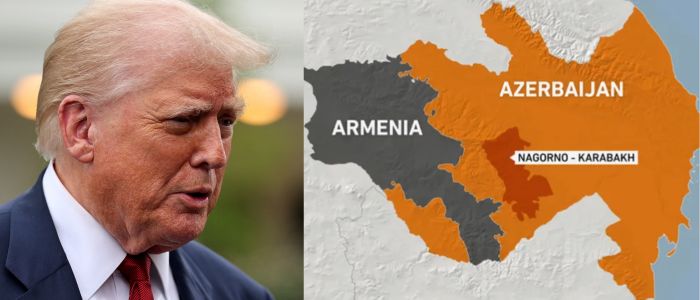The proposed talks come after Armenian Prime Minister Nikol Pashinyan met with Azerbaijani President Ilham Aliyev in Abu Dhabi last month. In the meantime, Abu Dhabi talks are being dubbed as diplomatic dialogue, and no headway has been made in one of the oldest conflicts peacefully.
Decades-Long Conflict Over Nagorno-Karabakh
Armenia and Azerbaijan have long been at loggerheads over the breakaway region of Nagorno-Karabakh, which declared independence from Azerbaijan with Armenian support in the late 1980s.
The region was historically home to a population that was largely ethnic Armenian, and which both countries have claimed since the collapse of the Russian Empire in 1917.
The region was almost totally depopulated in September 2022 when Azerbaijan retook the whole territory, and by then nearly all of its residents had fled to Armenia.
Armenia has accused Azerbaijan of wiping out Armenian cultural and historical heritage from those regions, taking them to the International Court of Justice (ICJ).
Three wars have so far been waged in the conflict, including that in 2020, during which more than 6,600 people were killed. The ICJ also has ordered Azerbaijan to allow the return of ethnic Armenians, displaced by fighting.
Azerbaijan, in response, has said the area was empty and homes were abandoned of their own free will, adding that it accepts all citizens without any distinction of race or religion.
Ongoing Efforts Toward Peace
A draft peace deal was done in March, and there was a spike of early ceasefire violations along the 1,000km Armenia-Azerbaijan border, but tensions have now decreased.
India and Pakistan decided at the UAE talks to have more discussions and build trust through confidence-building measures. Their final joint statement, however, did not specify detailed steps.
Many see the meeting in Washington as a critical stage in the peace process. It could be a leap toward addressing one of the post-Soviet region's most enduring territorial conflicts that has cost tens of thousands of lives and still influences regional politics.
World

Trump to Host Armenia, Azerbaijan Leaders for Peace Talks

The leaders of Armenia and Azerbaijan are headed for peace talks at the White House with US President Donald Trump, the first meeting between the two warring countries since 1994. Friday's meeting in Washington, DC, is poised as a high-level encounter and may see the announcement of an agreement for peace.















